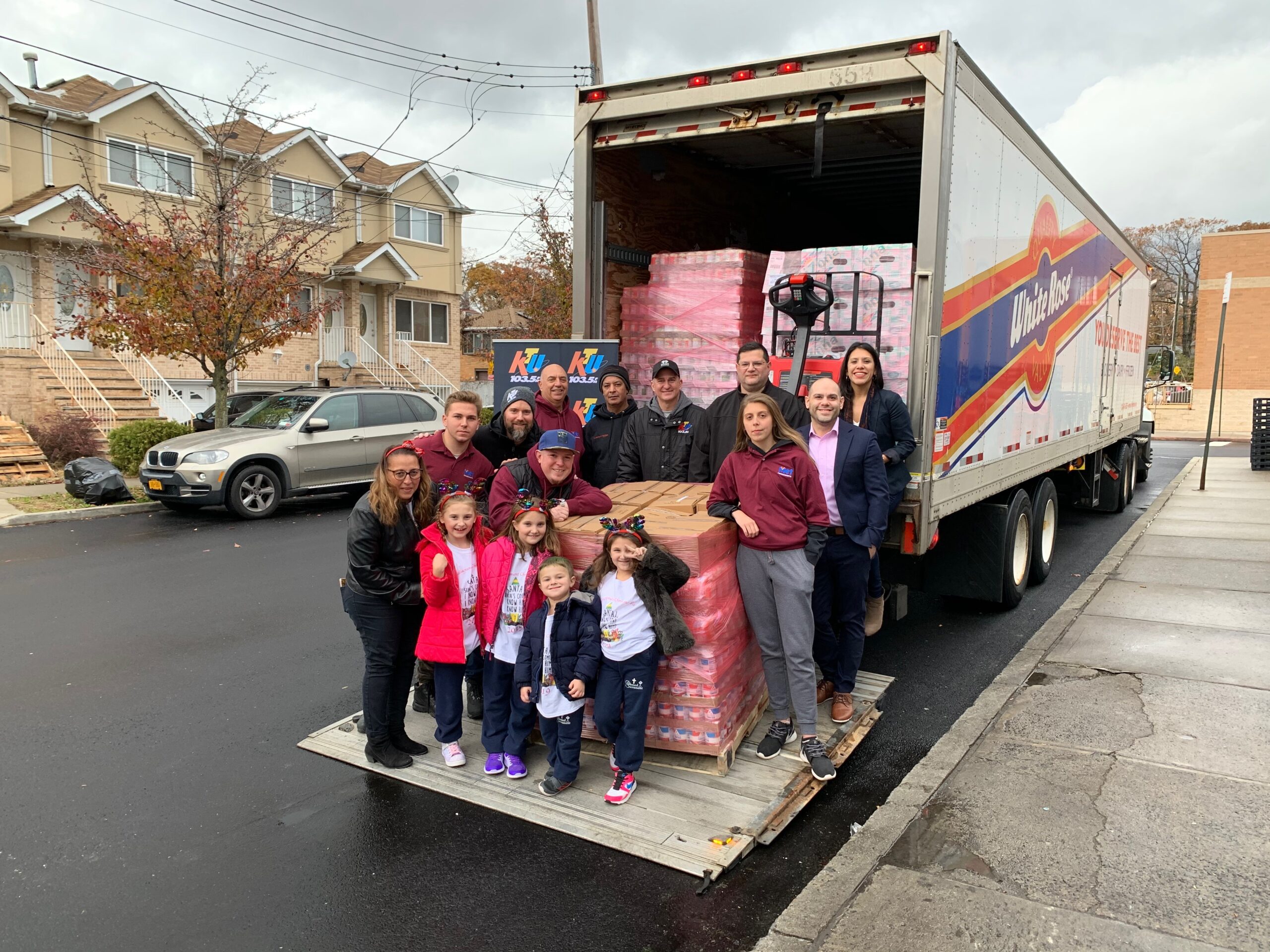
Picture this: The heartbeat of commerce pulsates through the veins of North America, where the rhythm of trade between the U.S. and Mexico crafts a narrative of opportunity, resilience, and innovation. For those navigating the roads and managing the flow of goods, understanding the currents shaping the logistics and trucking sectors is not just beneficial—it’s crucial. From Ryder’s strategic expansion in Laredo, Texas, to the shifting winds of labor within logistics giants, and the surprising intersection of politics and trucking, this article serves as your compass. It guides through the evolving terrain where business meets border, where layoffs signal industry recalibration, and where political activism finds its way onto the highways. Join us as we traverse these developments, offering insights into how they’re not merely news items but chapters in the ongoing saga of logistics and transportation.

Bridging the Trade Gap: Ryder’s Strategic Expansion
In the bustling trade corridor that connects the U.S. and Mexico, Ryder System Inc. has strategically positioned itself to capitalize on the surging cross-border commerce by inaugurating a state-of-the-art logistics center in Laredo, Texas. This 228,000-square-foot facility, situated merely 3 miles from the World Trade Bridge, is equipped with 102 truck dock doors and ample parking for 143 trailers, setting a new standard in logistics efficiency. Amidst a significant uptick in truck border crossings, which have soared over 20% annually post-pandemic, Ryder’s expansion is a testament to the growing demand for nearshoring and the need for swift, reliable supply chain solutions.
A Nexus of Trade and Opportunity
Ryder’s new logistics warehouse is not just a building; it’s a nexus for trade and economic activity, positioned at the heart of the busiest commercial truck crossing in the U.S. With over 7.35 million commercial trucks navigating the U.S.-Mexico border in 2023 alone, and Laredo processing a record 2.93 million of these, Ryder’s investment speaks volumes about its commitment to enhancing cross-border trade flows. Further expanding its footprint, Ryder is also upgrading a drayage yard in Nuevo Laredo, Mexico, to streamline the transfer of freight, reinforcing its role as a pivotal player in North American logistics.
Leveraging Location for Unmatched Efficiency
The logistical marvel does not stop at the warehouse’s doors. Located within a 6-mile radius of Ryder’s existing operations in Laredo, this facility is a beacon of operational synergy, allowing for the pooling of resources and labor for unparalleled service delivery. Ryder’s flexible approach to logistics, where customers can transition between multi-client and dedicated warehouse spaces, underscores a tailored, responsive service model. With Ryder’s expansion, Laredo cements its status as a critical hub for companies aiming to optimize their supply chains amidst the trade boom with Mexico.
As companies like Ryder pave the way for advanced logistics solutions, the landscape of U.S.-Mexico trade is set to evolve dramatically, promising more efficient, diversified supply chains. This development not only highlights Ryder’s foresight and adaptability but also marks Laredo as an epicenter of trade innovation, ready to meet the dynamic demands of the global market.
🔗 Embark on a journey through the future of logistics.

Turbulence in Logistics: Navigating Through Layoffs
The logistics sector, a critical backbone of global commerce, is currently navigating through turbulent times with layoffs lingering across both air and land operations. Notably, Amazon Air’s decision to cease its cargo-handling activities in San Antonio has led to 65 employees at Worldwide Flight Services facing job losses, marking a permanent closure of its Kelly Field operations. This move is part of a broader trend of cutbacks within Amazon’s air operations, highlighted by the recent shutdown of its Leipzig/Halle International Airport facility and reduced flights across Europe. Despite these setbacks, Amazon Air maintains a fleet of 90 jets, indicating a recalibration rather than a full retreat from its air cargo commitments.
The Ripple Effect Across the Industry
The tremors of change are not confined to air freight alone; they’re palpable across the logistics landscape. Instacart’s restructuring efforts, resulting in the layoff of approximately 250 employees, mirror the industry’s broader challenges in adapting to post-pandemic market dynamics. Similarly, ODW Logistics and APL Logistics are downsizing their operations due to lost clients and strategic shifts, respectively, underscoring the volatile nature of logistics demand and the imperative for operational agility. Despite these challenges, the logistics sector continues to be a significant employer, with the Bureau of Labor Statistics reporting a seasonally adjusted addition of 15,500 jobs in January, although this still marks a decline from pandemic-driven highs.
These layoffs, while significant, represent a realignment within the logistics and transportation sector as it grapples with fluctuating demand, the need for organizational efficiency, and the ongoing quest for innovation in supply chain management. As companies like Amazon and Instacart adjust their sails to navigate the changing winds of commerce, the logistics industry stands at a crossroads, poised between adaptation and resilience in the face of shifting economic landscapes.
🔗 Explore the evolving world of logistics and its impact on the global supply chain.

Wheels of Protest: Trump’s Call to Action
In an unprecedented move that intertwines politics with the logistics industry, a pro-Trump trucker, widely recognized on social media as Chicago Ray, has ignited a campaign among truckers to halt deliveries to New York City. This bold protest comes in the wake of a New York court’s decision mandating former President Donald Trump to pay a substantial $355 million in damages for financial fraud committed by him and the Trump Organization. Trump’s endorsement of the trucker-led initiative underscores a growing tension between political beliefs and professional responsibilities, heralding a new era of activism within the transportation sector.
Navigating Uncharted Territory
The endorsement from Trump on his platform, Truth Social, not only amplifies the campaign but also positions it within a broader discourse on the “weaponization of law enforcement” against him, as he claims. Ray’s viral video, boasting over six million views, acts as a rallying cry for truckers across the nation, suggesting a significant portion of the trucking community’s allegiance to Trump. This movement, while still in its nascent stages, poses a potential challenge to New York City’s supply chain, threatening to disrupt the flow of goods in protest of what they perceive as political persecution.
The implications of this trucker campaign extend beyond immediate logistical disruptions, hinting at the potent mix of political fervor and professional solidarity. As the trucking community contemplates a collective stance against delivering to one of the nation’s busiest metropolises, questions arise about the impact on businesses, consumers, and the broader political landscape. This unfolding story not only highlights the influence of political figures on industry movements but also marks a pivotal moment of intersection between political activism and the essential services that keep America moving.
🔗 Experience the full scope of this proposed protest on wheels.
Before You Hit The Road…
Thank you for navigating this week’s news hits journey. We hope that you’ve enjoyed our comprehensive view into strategic decisions and their ripple effects across the logistics and trucking sectors. Through Ryder’s bold move to bridge the trade gap with a state-of-the-art logistics center, the industry’s battle with layoffs amidst a fluctuating economy, and the unprecedented merger of political activism and trucking, a rich tapestry of events has been woven. These stories are more than just headlines; they are signposts of change, challenging us to think critically about the future of trade and transportation.
Your thoughts and experiences are invaluable we encourage you to share them in the comments below. This exchange of ideas within our community not only enriches our collective understanding but strengthens our ability to navigate these complex times together. As we continue look ahead, remember to check back next week for another edition of Optimum Logistic’s weekly news recap, as we journey through the ever-evolving landscape of logistics and trucking together
If you made it to this part of the article, we’d just like to take a moment to thank you for taking the time to read this weekly recap. Be safe out there and as always, If you’re in search of CDL A, B, or warehouse positions, check out our open positions. And if you need staffing solutions for commercial driving or industrial positions, be sure to explore our offerings.



